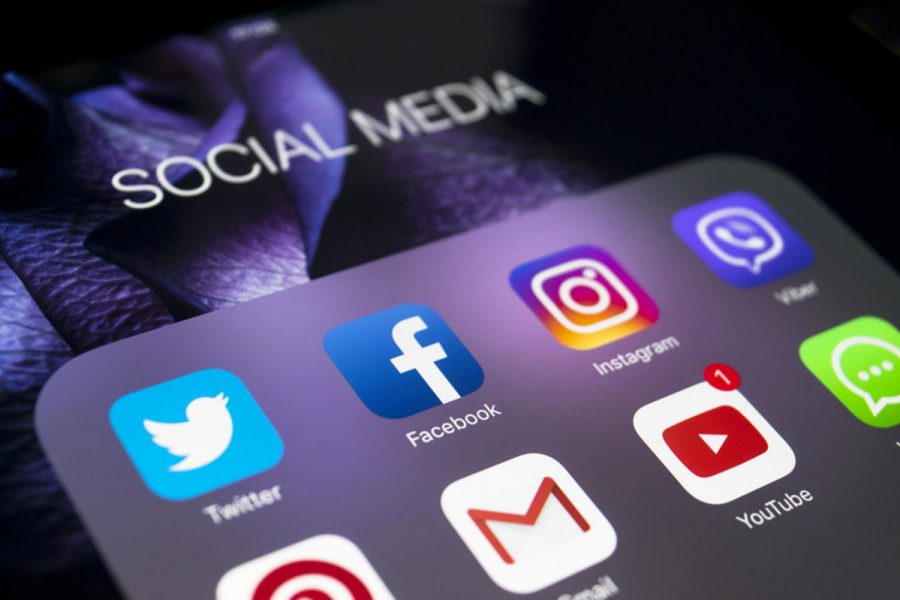Op-Ed: Are We Really Staying Connected?
May 6, 2020
COVID-19 has laid bare that technology is a Faustian bargain, giving and taking in equal measure.
Since the worldwide pandemic surged in late March, use of technology has kept pace—especially on larger devices. According to an April 7 New York Times article, Facebook has received 27% more site visits, Netflix.com 16% more, and YouTube.com saw a 15.3% spike in site traffic. This is not over the course of years, but mere weeks.
I’ll be the first to admit I’ve spent more time on technology than usual. After all, it’s an easy way to destress after a long day.
But it’s not good for us. Blue light emanating from our screens stunts the production of melatonin, a neurotransmitter that regulates our sleep cycle.
By spending hours upon hours on technology, we’re negatively impacting our sleep cycle, among other things. We’re also removing ourselves from reality and failing to have meaningful conversations.
A recent Business Insider article explained that quarantine has exacerbated the feelings of anxiety and loneliness, especially for millennials. “The new normal of life under quarantine is expected to inflame the loneliness and anxiety that so many within the generation already felt,” the article reads.
Virtual resources are available to help people cope with these feelings—provided by the School and otherwise—but that can only do so much.
As people continue to gravitate toward social media as a way to stay connected, unfortunately, it is having the opposite effect. Indeed, social media can actually make us feel more isolated.
Talking on the phone, texting, sharing Facebook or Instagram posts, and video chatting are just some of the ways people are staying connected amid this health crisis. While these things can satisfy peoples’ need to communicate with each other, it does not necessarily fulfill their emotional needs.
Clinical Psychologist Sophie Lazarus of the Ohio State University Medical Center explained that virtual connections can satisfy some people’s needs—but not all.
“It’s the perceived quality of the relationships that make up social networks, not the quantity or type that counts,” Lazarus said in a Wexner Medical Center publication.
Social media has a reputation for being more focused on appearances than genuine connections, especially in age groups such as my own. We’re so focused on taking the perfect Snapchat for our story or deciding which picture will get the most likes on Instagram that we fail to realize we’re not forging meaningful relationships, but rather superficial ones.
I know I’m not the only one who feels this way. In fact, an ABC News article discussed the pressure teenage girls are under to appear “perfect” on social media.
“Every girl thinks she has to be better than another girl and it shouldn’t be like that,” one of the girls said. This can lead to a hypercompetitive environment rather than a meaningful way to connect with others.
At a time where in-person interactions are limited, it is imperative that we find ways to stay connected to our friends and family—and ensure our emotional needs are met.
Whether it’s by FaceTiming instead of talking on the phone, starting a quarantine journal, or something else, now is the time to reflect on your interactions and make sure they are rewarding.
Remember, social media is a helpful tool, but it shouldn’t be at the center of everything. Take a walk, set down the phone, and enjoy the things that are in front of you. It can help more than you think.

























































